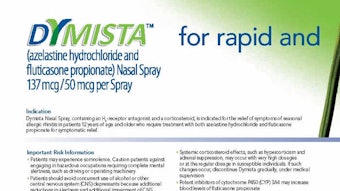New Trend: Increased FTC Involvement in State Professional Boards
In recent months, the Federal Trade Commission (FTC) has become more involved in the states’ rulemaking process by increasing its antitrust examination of state professional board actions, particularly board decisions and regulations, state legislation relating to scope of practice. These antitrust examinations by the FTC reportedly are to promote and protect competition by prohibiting agreements that unreasonably restrict trade. However, concerns about this increased involvement exist, and the American Medical Association (AMA) with the Scope of Practice Partnership (SOPP), which the AAO-HNS is a member of, are closely monitoring and addressing the FTC’s inappropriate involvement as it arises. The new trend by the FTC threatens patient safety and the structure of determining what is appropriate within a professional’s scope of practice. Scope of practice guidelines are typically determined by the legislature and state professional boards. These methods help to ensure that unqualified practitioners are not rendering services they are not trained to perform. There is concern that the FTC’s involvement will discourage state boards and state legislatures from engaging in defining appropriate scope of practice guidelines for fear of potential antitrust lawsuits. The FTC recently has taken action in the form of letters and enforcement actions directed at state boards and state legislators. The FTC has issued several letters urging state boards to reject, or more thoroughly analyze, regulations that could potentially affect competition. One of the first examples of the FTC becoming more involved with state boards was a letter in 2010 that was sent to the Alabama State Board of Medical Examiners (ASBME). The FTC encouraged the board to reject a regulation that would prohibit non-physician professionals from providing advanced interventional pain management services, noting it would adversely affect competition. This letter was sent to the ASBME without any studies or evidence indicating this to be true. Although the FTC did not directly threaten to bring an antitrust action, the letter itself provided enough of a threat. The effect of the letter on the ASBME resulted in the board immediately ceasing activity on the proposed regulation. Since the letter to the ASBME in 2010, the FTC has reached out to legislators and state boards in Florida, Kentucky, Louisiana, Missouri, Tennessee, and Texas, where it commented on bills to regulate providers of interventional pain management procedures and proposed regulations to expand the scope of practice of nurses. Some of the FTC’s activity in the states has morphed into enforcement actions. In North Carolina, the State Board of Dental Examiners was attempting to approve a regulation that would prohibit non-dentists from providing teeth-whitening services, which the board had determined constituted the practice of dentistry. The FTC issued an order directing the board to stop regulating teeth-whitening, alleging that the board was harming competition by blocking non-dentists from providing the services. The case is currently awaiting consideration in the U.S. Court of Appeals. The AMA and the SOPP have made progress toward working with the FTC to address the over-involvement of the FTC with state boards and state legislatures. The FTC letters that are now distributed no longer attempt to make clinical judgments. Instead, disclaimers have been added outlining that FTC staff members are not subject-matter experts on clinical or patient safety issues and are not offering advice on such issues. Furthermore, the FTC has now acknowledged that “certain professional licensure requirements are necessary to protect patients.” The FTC has also agreed to work with the states by reaching out to state medical associations before drafting letters. The AAO-HNS, the AMA, and others in the physician community are concerned that these actions by the FTC will prevent state legislatures, regulators, and medical boards from performing their duties and enacting legislation, proposing regulation, or other actions to protect patient safety for fear of reprisal and antitrust liability. The AAO-HNS will continue to work with the AMA and the SOPP as this issue progresses and advocate where necessary. For more information, email AAO-HNS State Legislative Affairs at legstate@entnet.org. In addition, to receive timely updates on state, federal, or grassroots initiatives, AAO-HNS members are encouraged to join the ENT Advocacy Network—a free member benefit. To join, email govtaffairs@entnet.org.
In recent months, the Federal Trade Commission (FTC) has become more involved in the states’ rulemaking process by increasing its antitrust examination of state professional board actions, particularly board decisions and regulations, state legislation relating to scope of practice. These antitrust examinations by the FTC reportedly are to promote and protect competition by prohibiting agreements that unreasonably restrict trade. However, concerns about this increased involvement exist, and the American Medical Association (AMA) with the Scope of Practice Partnership (SOPP), which the AAO-HNS is a member of, are closely monitoring and addressing the FTC’s inappropriate involvement as it arises.
The new trend by the FTC threatens patient safety and the structure of determining what is appropriate within a professional’s scope of practice. Scope of practice guidelines are typically determined by the legislature and state professional boards. These methods help to ensure that unqualified practitioners are not rendering services they are not trained to perform. There is concern that the FTC’s involvement will discourage state boards and state legislatures from engaging in defining appropriate scope of practice guidelines for fear of potential antitrust lawsuits.
The FTC recently has taken action in the form of letters and enforcement actions directed at state boards and state legislators. The FTC has issued several letters urging state boards to reject, or more thoroughly analyze, regulations that could potentially affect competition. One of the first examples of the FTC becoming more involved with state boards was a letter in 2010 that was sent to the Alabama State Board of Medical Examiners (ASBME). The FTC encouraged the board to reject a regulation that would prohibit non-physician professionals from providing advanced interventional pain management services, noting it would adversely affect competition. This letter was sent to the ASBME without any studies or evidence indicating this to be true. Although the FTC did not directly threaten to bring an antitrust action, the letter itself provided enough of a threat. The effect of the letter on the ASBME resulted in the board immediately ceasing activity on the proposed regulation. Since the letter to the ASBME in 2010, the FTC has reached out to legislators and state boards in Florida, Kentucky, Louisiana, Missouri, Tennessee, and Texas, where it commented on bills to regulate providers of interventional pain management procedures and proposed regulations to expand the scope of practice of nurses.
Some of the FTC’s activity in the states has morphed into enforcement actions. In North Carolina, the State Board of Dental Examiners was attempting to approve a regulation that would prohibit non-dentists from providing teeth-whitening services, which the board had determined constituted the practice of dentistry. The FTC issued an order directing the board to stop regulating teeth-whitening, alleging that the board was harming competition by blocking non-dentists from providing the services. The case is currently awaiting consideration in the U.S. Court of Appeals.
The AMA and the SOPP have made progress toward working with the FTC to address the over-involvement of the FTC with state boards and state legislatures. The FTC letters that are now distributed no longer attempt to make clinical judgments. Instead, disclaimers have been added outlining that FTC staff members are not subject-matter experts on clinical or patient safety issues and are not offering advice on such issues. Furthermore, the FTC has now acknowledged that “certain professional licensure requirements are necessary to protect patients.” The FTC has also agreed to work with the states by reaching out to state medical associations before drafting letters.
The AAO-HNS, the AMA, and others in the physician community are concerned that these actions by the FTC will prevent state legislatures, regulators, and medical boards from performing their duties and enacting legislation, proposing regulation, or other actions to protect patient safety for fear of reprisal and antitrust liability. The AAO-HNS will continue to work with the AMA and the SOPP as this issue progresses and advocate where necessary. For more information, email AAO-HNS State Legislative Affairs at legstate@entnet.org. In addition, to receive timely updates on state, federal, or grassroots initiatives, AAO-HNS members are encouraged to join the ENT Advocacy Network—a free member benefit. To join, email govtaffairs@entnet.org.











